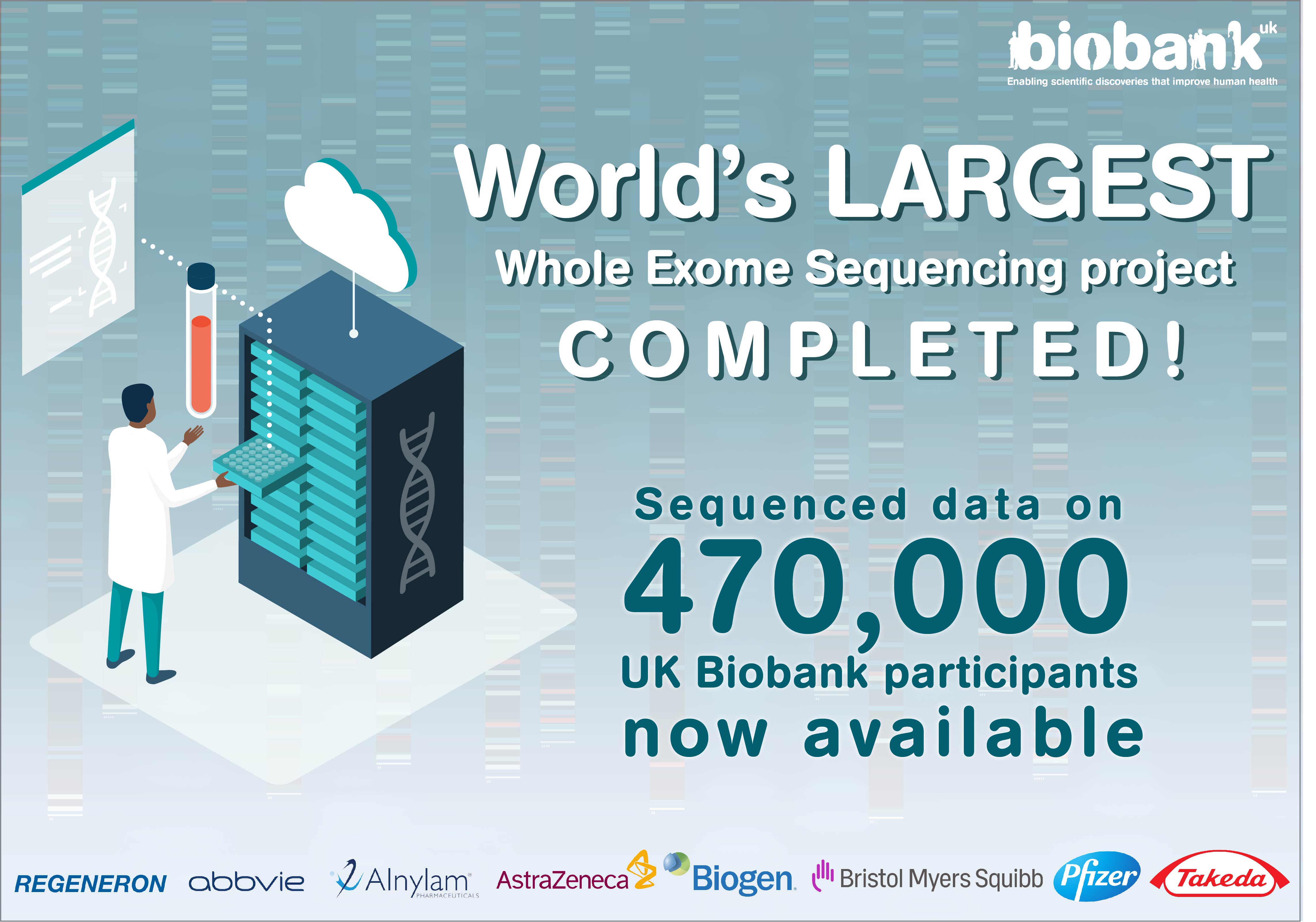Final data release from the world’s largest whole exome sequencing project
Final data release from the world’s largest whole exome sequencing project

UK Biobank has today added the final tranche of exome sequencing data to its research database. This represents completion of cohort-wide exome sequencing for over 470,000 participants within the UK Biobank resource. These de-identified data can now be accessed by approved researchers through the cloud-based UK Biobank Research Analysis Platform.
The generation of whole exome sequencing data was made possible through collaboration and funding support from the UK Biobank Exome Sequencing Consortium (UKB-ESC). The consortium comprises of Regeneron Pharmaceuticals, AbbVie, Alnylam Pharmaceuticals, AstraZeneca, Biogen, Bristol Myers Squibb, Pfizer and Takeda. This unique collaboration has resulted in the largest exome dataset in the world and will be transformative for studying the genetic determinants of disease.
Whole exome sequencing measures the regions of the genome (about 2%) that are involved in coding for proteins and is widely considered to be an important technique for identifying disease-causing or rare genetic variants. The addition of these data will support the diagnosis, prevention and treatment of a range of diseases such as diabetes, dementia, cancer, cardiovascular and infectious diseases.
The data generated will be paired with detailed, de-identified medical and health records within the UK Biobank resource, including enhanced measures such as brain, heart and body imaging, to create an unparalleled resource for linking human genetic variations to human biology and disease.
"We are delighted to have completed this ambitious project to exome sequence over 470,000 UK Biobank participants and to be able to make the resulting data widely accessible to the global research community. Collaboration at this scale benefits the whole research community and enables accelerated scientific discoveries for health. An earlier release of exome sequencing data has already resulted in novel genetic findings for the prevention and treatment of obesity, and we look forward to even more new insights from these data across the research community in the years ahead. Thank you to all of our participants for their generosity and support in enabling such transformative projects to happen"Dr Mark Effingham, Deputy CEO, UK Biobank
Related News
- Regeneron announces major collaboration to exome sequence UK Biobank genetic data more quickly
- 300,000 participant exomes now accessible for approved researchers through Research Analysis Platform
- 450,000 participant exomes made available today for approved researchers through Research Analysis Platform
